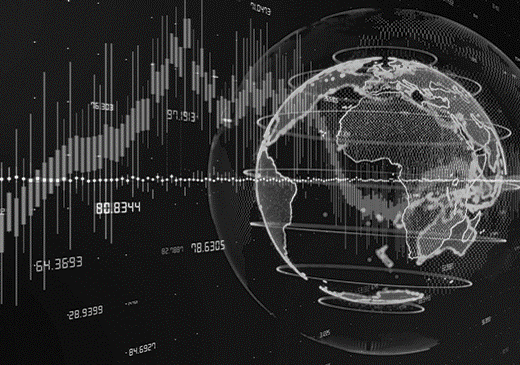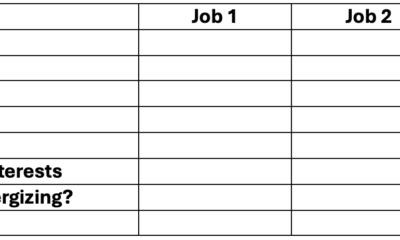Professional Development
Taking the Pulse of a Changing Global Economy – A Guide to Business Strategy!

Understanding the Global Economy Amidst COVID-19: A Comprehensive Overview
How do you navigate the moods and interactions of a $90 trillion global economy? Few economic indicators can help you monitor economies, markets, and companies to provide insightful business outlook.
Following the outbreak of COVID-19 in Wuhan, China, a domino effect ensued, disrupting global value chains and impacting lives and livelihoods worldwide. With viruses threatening lives and lockdowns jeopardizing economies, the world faced an unprecedented challenge.
The current scenario necessitates international institutions to acknowledge the looming economic and financial emergencies. Projections from the World Bank and the International Monetary Fund (IMF) paint a bleak picture of a deep recession, the worst since the 1930s. However, amidst this economic downturn, the Organization for Economic Co-operation and Development (OECD) anticipates a swift recovery for advanced economies.
As we navigate through this crisis, it is imperative for businesses to adapt and innovate. According to Robert Zoellick, former president of the World Bank, skilled adapters and disruptors must remain vigilant to signals of confidence from consumers, societies, governments, and industries.
Economics for Strategic Business Planning
The recovery of businesses is intricately linked to a country’s economic conditions and policies. Understanding macroeconomic indicators can provide valuable insights for business strategists seeking to expand, diversify, or scale up their operations. By delving into government policies and economic forecasts, companies can better anticipate market trends and consumer behavior.
Business strategists must analyze global economic data to discern signals of recovery or slowdown. Monitoring key economic indicators can help in making informed decisions and devising effective business strategies.
17 Economic Indicators Every Business Leader Should Monitor
Various agencies release daily, weekly, monthly, and quarterly economic measurements to gauge the health and direction of the global economy. Choosing forward-looking indicators that offer predictive value is crucial for CEOs and business strategists. These indicators can provide valuable insights into market trends and economic conditions.
| Indicator | Measures |
|---|---|
| GDP growth |
Gross Domestic Product (GDP) measures the market value of all final goods and services produced in a country, indicating its economic health. A low GDP growth rate may signal a recession, while positive growth reflects economic expansion.
|
| GDP per capita |
It signifies the average purchasing power of individuals in a country, reflecting the standard of living.
|
| Labor participation |
This indicator measures the total working population in a country, indicating demand and labor market conditions.
|
| Exchange rate volatility |
It assesses the fluctuation in currency values, impacting competitiveness in international trade.
|
| Global Purchasing Managers Index (PMI) |
PMI offers insights into the health of the manufacturing and service sectors, with a score above 50 indicating growth.
|
| Raw materials |
High and volatile commodity prices can impact business costs and competitiveness.
|
| Budget deficit |
The disparity between government expenditure and revenue, influenced by economic conditions and fiscal policies.
|
| Inflow of foreign direct investment |
High FDI inflows indicate a favorable environment for business growth and investment.
|
| Global market indices |
Indices like the S&P 500 reflect the performance of major companies, providing insights into market health.
|
| Ease of doing business |
The World Bank’s rankings assess the regulatory environment for starting and running businesses.
|
| Logistics performance index |
This index measures a country’s efficiency in moving goods across borders, impacting trade and supply chains.
|
| Exports and imports to GDP |
These indicators reflect the health of international trade and the country’s reliance on global markets.
|
| Inflation |
CPI measures consumer price changes, indicating inflation levels and cost pressures.
|
| Global Risk Report |
This report by the WEF highlights global business risks, offering insights into vulnerabilities and recommended strategies.
|
| Global Competitiveness Index |
This index evaluates a country’s ability to create prosperity through resource utilization and policy effectiveness.
|
| World Economic Outlook (WEO) |
WEO forecasts global economic activity, providing insights into investment, production, and trade trends.
|
| Credit reporting agencies |
Agencies like Moody’s, Fitch, and S&P issue forecasts for sectors and countries, offering valuable insights for businesses.
|
Evolving Business Models: A Strategic 4-Point Plan
Amidst uncertainties surrounding COVID-19 and its economic impact, businesses must adapt and innovate to thrive in a rapidly changing landscape.
A four-point plan can guide business strategists in building resilient and future-ready systems:
1. Decarbonization – Embracing Environmental Sustainability
Given the increasing focus on a green economy and sustainable practices, businesses must align with environmental goals to meet consumer demands and regulatory standards.
2. Diversify – Balancing Global and Local Operations
With global supply chains facing disruptions, companies should diversify their sourcing strategies to mitigate risks and ensure business continuity.
3. Improvise – Nurturing Talent and Innovation
As automation reshapes the workforce, businesses must focus on upskilling employees and leveraging human talent to drive innovation and competitiveness.
4. Digitalize – Embracing Technological Advancements
Amidst the digital revolution, companies must leverage technology to enhance operations, customer engagement, and overall business performance.
By embracing change and aligning with evolving economic trends, businesses can navigate the current crisis and build a sustainable future. Strategic planning, informed by economic indicators and market insights, is essential for long-term success and resilience.
-

 Professional Development1 month ago
Professional Development1 month agoDrawing up your strategy
-

 Personal Growth2 months ago
Personal Growth2 months agoSucceeding as a ‘parentpreneur’: Top tips
-

 Videos2 months ago
Videos2 months agoGreat Leaders INSPIRE Others To Do Great Things
-

 Productivity1 month ago
Productivity1 month agoHow to Increase Remote Work Productivity
-

 Productivity2 months ago
Productivity2 months agoTips for Boosting Work Productivity
-

 Productivity2 months ago
Productivity2 months ago5 Ways to Increase Your Personal Assistant’s Productivity
-

 Leadership1 month ago
Leadership1 month agoHow to Tackle Big Challenges
-
Leadership1 month ago
Cutting Through the Clutter of Internal Communications




























